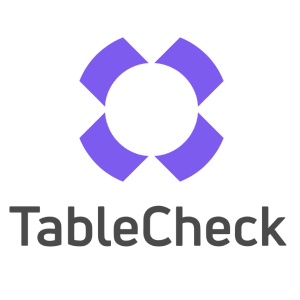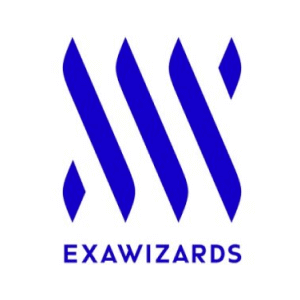Updated March 5, 2025
Employer of Record (EOR) in Japan: A Guide for 2025
Is it possible to work from Japan for an overseas company?
Yes! And there are a few ways to accomplish this. The simplest case is when the company you're working for has a Japanese branch office — they can simply employ you through that office.
But what about companies that don't have an office in Japan? That's where Employer of Record (EOR) services come in.
In this article, we’ll explain EORs, how they work, and the services they provide. We'll also explore why Japanese companies are increasingly adopting EOR solutions, the benefits they offer, and the potential risks involved with using an Employer of Record service.
Let’s jump right into it.
In this article: 📝
What Is An Employer of Record?
Essentially, an Employer of Record (EOR) is a third-party organization that takes on the legal responsibilities of employing workers on behalf of another company.
Essentially, the EOR employs you, and takes care of all the complexity related to this in Japan. Usually the original company (the one you actually work for) pays the EOR your salary (plus a fee) and the EOR pays you.
Think of it as a shortcut for businesses to bring on talent from around the world without needing to set up shop in every country they’re hiring from.
According to EOR contracts, the Employer of Record becomes the legal employer. They handle necessary tasks such as taking care of compliance with local labor laws, managing payroll and taxes, and even sorting out employee benefits on behalf of the company that’s actually hiring the employee.
The employer-of-record model fills an important gap, as the company gets to focus on what really matters—working with their new team members and driving their business forward.
How Does An Employer of Record Service Agreement Work?
The EOR process begins when a company identifies a candidate they wish to hire in another country.
Instead of going through the costly and time-consuming process of setting up a local branch or subsidiary, the company simply partners with an EOR provider. The EOR then steps in as the legal employer of the worker, managing all the complex statutory obligations that come with hiring from overseas.
These include tasks like drafting employment contracts that comply with local laws and handling payroll calculations, tax contributions, and employee benefits—and this is only the tip of the iceberg.
EOR companies also help ensure compliance with local labor regulations and manage things like notice periods, worker protection, and termination rules.
While the EOR takes care of the legal and administrative aspects, the company retains full control over day-to-day operations. This means that companies are able to oversee tasks, workflows, and performance without being crushed under HR-related complexities.
What Services Does an Employer of Record Service Provide?
Here’s a full list of all of the services EOR companies offer:
Payroll management: Ensuring employees are paid accurately and on time, handling tax withholdings, and processing payments seamlessly.
Compliance assurance: Keeping up with the ever-changing local labor laws to make sure the company’s hiring practices meet all regulatory requirements.
Benefits administration: Providing statutory and comprehensive benefits, like health, insurance pensions, and paid leave packages.
Onboarding support: Crafting locally compliant employment contracts and simplifying the onboarding process to help new hires settle in smoothly.
Termination assistance: Managing off-boarding in compliance with local rules, including notice periods and severance pay.
Immigration support: Arranging work visas and permits to ensure employees are legally eligible to work in their host country.
Local expertise: Acting as the interface between your employees and local government authorities, providing ongoing advice on labor laws and regulations.
As you can tell, these services can significantly reduce risk and administrative burden, especially for smaller teams or businesses. That said, all businesses can benefit from the services offered by EOR companies, no matter their size.
List of EOR Services for Japan
Here are a few of the top Employer of Record (EOR) services that support hiring in Japan.
- Deel – Deel is one of the most popular EOR services globally. They support hiring in Japan and help take care of all the complexities here.
- Globalization Partners – Another popular EOR provider, Globalization Partners also provides all the services required to hire overseas employees from Japan.
- GoGlobal – GoGlobal provides worldwide EOR services (including for Japan). They offer an end-to-end service for HR, payroll, and compliance.
- Remote.com – Remote.com is another popular option for hiring overseas employees from Japan.
- Papaya Global – Papaya Global is another reputable partner that helps overseas companies hire in Japan and handle issues like compliance.
- Velocity Global – Velocity Global offers various services to companies looking to hire in Japan, including EOR services.
Is The Employer of Record Service a Recent Trend?
While the idea of outsourcing employment responsibilities is nothing new, the modern EOR model has really taken off in the last 10 years, mainly due to globalization and the growing demand for flexible remote work solutions.
Before EORs became the go-to solution for international hiring, companies often relied on Professional Employer Organizations (PEO) or went through the arduous process of setting up local entities in each country where they wanted to hire.
Both approaches had their own set of challenges: PEOs required companies to have a legal entity set up in the target country (Japan, in this case), adding an extra layer of complexity. So, establishing local entities was both expensive and time-consuming.
On top of that, navigating local labor laws without dedicated expertise often left companies vulnerable to compliance risks. So, the EOR companies fill a big gap left by the shortcomings, or incapability, rather, of these PEO companies.
The Main Differences Between EOR and PEO Companies

While both EORs and PEOs assist companies with employment and HR needs, they differ in important ways:
Legal employer status: An EOR becomes the legal employer, assuming full responsibility for compliance, while a PEO acts as a co-employer, sharing responsibilities with the client company.
Entity requirement: A PEO requires the client company to have a legal entity in the target country, whereas an EOR allows companies to operate without establishing one.
Scope of services offered: EORs are ideal for international hiring, while PEOs are more suitable for companies that already have a local subsidiary in the country where they want to hire personnel.
PEOs are an excellent fit for businesses with existing entities and require co-employment support, such as the administration of payroll and benefits. On the other hand, EORs are better for companies aiming to expand quickly without the need for a local entity.
So, the choice between the two often boils down to the company’s scale and long-term plans.
If a company is just looking to test the waters in a new country or hire only a few employees, an EOR offers unmatched flexibility and speed. However, if the business just needs streamlined HR services, a PEO might end up saving them a pretty penny over time.
Why Are Japanese Companies Turning To Employer of Record Services?
The rise of the EOR model in Japan isn’t surprising when you consider the multifaceted factors that have driven Japanese companies to embrace it. Here are the main reasons why the Employer of Record service agreement is so popular in Japan.
Access To Global Talent
Japan’s labor market often struggles with shortages, especially in tech and specialized industries. This pushes companies to look for talent abroad. EORs offer a streamlined way to tap into the global talent pools without having to deal with the complexities of establishing a local entity.
What’s more, with salaries for software developers in Japan averaging around ¥5.5 million annually (according to government data), foreign companies can find highly skilled professionals at competitive rates compared to countries like the US or Australia, where median salaries are significantly higher.
In a similar manner, Japanese companies can use EORs to hire skilled professionals abroad to fill gaps that the local talent cannot address, further enhancing their competitiveness.
Cost Efficiency
For Japanese firms, hiring through an EOR is often more economical than establishing and maintaining a foreign subsidiary. EORs simply eliminate the need for expensive compliance structures and offer a cost-effective solution for businesses looking to scale globally.
For companies and countries with higher salary averages, like the United States, Japanese professionals can offer both expertise and cost advantage, creating mutual benefits for hiring between countries.
Ease of Entity Establishment
Being able to easily set up a legal entity in a foreign country is, arguably, the biggest benefit and the best convenience Employer of Record companies offer.
Setting up a legal entity in a foreign country is often a lengthy, costly, and complex process. By leveraging an EOR, Japanese companies can bypass these issues completely and quickly start their operations abroad.
Additionally, EORs provide flexibility for firms that are testing new markets, allowing them to assess liability before committing to a permanent presence in a new industry and providing a safety net.
This ease of entry into the market has also become a strategy for firms that wish to withdraw legal entities while retaining employees through the EOR framework, ensuring work continues without the administrative overhead.

The Remote Work Trend
Much like everywhere else in the world, after the COVID-19 pandemic, work dynamics in Japan have also been revolutionized, pushing companies to adopt remote work at unprecedented levels. EORs have capitalized on this shift by enabling seamless hiring of remote employees across the globe.
So, companies in Japan have embraced EOR as part of their hiring strategies, enabling them to access talent in different time zones and implement “follow-the-sun” support models. This approach has been especially valuable for customer service and technical support roles.
Together, the reasons we explored above paint a good picture of why companies increasingly rely on EORs to address talent shortages, manage costs, and expand operations in the most efficient manner.
That said, if you’d like to learn more about remote work practices in Japan, make sure to check out our “Remote Work in Japan” article after this.
Are There Any Risks To Using Employer of Record Services Japan?
While EORs offer many benefits, they do come with a few potential risks. Let's look at these from both the employer's and employee's viewpoints.
Employer’s Risks When Working With an EOR
Businesses should be mindful of the following points before deciding to work with an EOR:
Not being in “full control”: Since the EOR is the legal employer, businesses might feel they lack direct influence over employment decisions. However, clear communication and a trusted EOR provider can help solve this problem.
Provider reliability: Partnering with an unreliable EOR can lead to compliance gaps or operational inefficiencies, which can partially defeat the purpose of having the service in the first place. Therefore, it’s crucial to research and choose a provider with strong local expertise and a solid track record.
Costs and limitations: EOR services come with fees, which may not suit every budget. There are also restrictions on employee numbers and contract durations in some countries. For example, in Germany, labor leasing licenses limit the employment term to 18 months. After this period, the foreign company usually can't keep the team member through the same EOR. There's a waiting period before the company can rehire the employee through the same or another EOR.
The risk of “permanent establishment”: It’s important to keep in mind that EORs do not shield companies from all tax risks. This especially applies when local hires engage in revenue-generating activities or high-level decision-making. When this is the case, tax authorities may classify the business as having a permanent establishment, which can result in local tax obligations. This risk can severely limit the company’s operations in Japan.
Intellectual property security concerns: Before using an EOR company, businesses should make sure that their sensitive intellectual properties and the rights related to them are protected under legal regulations and agreements in the country of destination, which, in this case, is Japan.
Despite these challenges, however, businesses that select reputable EOR providers often find the risks manageable, as it allows them to focus on their operations while reaping the benefits of having a global hiring pool.
Potential Concerns for Employees Hired Through an EOR
In addition to the above, there are other risks concerning the employees hired through an EOR:
Role ambiguity: Employees hired through an EOR might feel disconnected from the parent company, which could affect how they engage with their colleagues, tasks, and the work environment at large. Open communication and clear role definitions are not only good but also essential to bridge this gap.
Private data security concerns: Businesses need to ensure robust legal agreements are in place to protect sensitive private information and data of employees, especially when working with global teams.
Dissatisfaction due to varying benefits: Depending on the EOR‘s offerings, employees may receive different benefits (such as equity) compared to their local peers, which can seriously affect the satisfaction and retention of employees in the long term.
In order to prevent these concerns from arising in the first place, employees should fully understand their employment terms and rights, including the duration of the contract and the benefits offered.
Also, maintaining open communication with both the EOR and parent company to clarify their expectations and report any concerns as soon as they arise is key to having a smooth process.
How Much Does EOR Cost in Japan: Employer of Record Cost
The pricing of employer of record services varies depending on the company and the specific needs of a business.
Most EOR providers charge a monthly fee per employee, with additional fees depending on services required, such as supplemental benefits. Here’s a breakdown of typical costs:
Monthly fees: These usually include employee compensation, allowances, and employer-related costs like social security and benefits.
Management fees: EORs charge an administrative fee for handling administrative tasks.
Payroll and benefits: EORs handle all payroll items, tax withholdings, and benefits administration, which are included in the total monthly cost.
Of course, employers cover 100% of these costs, which is something that should be considered when planning global expansion.
Final Word: Are The Employer of Record Service Agreements The Ultimate Solution for Foreign Businesses?

Considering all we’ve discussed in this article, Employer of Record (EOR) services offer a practical solution by providing access to a global talent pool. They are a disruptive force in the hiring market, creating new opportunities for Japanese talent abroad while allowing international companies to tap into Japan’s expertise.
However, this raises important questions about the long-term impact on Japan’s ability to retain local talent and how the weakness of the Japanese yen might influence hiring dynamics.
If foreign companies frequently hire Japanese talent while fewer foreign professionals enter the Japanese job market, this imbalance could pose challenges for the local workforce over time.
As EOR adoption continues to grow, it is essential for Japan’s industries, government, and educational institutions to address wage disparities and foster an environment that supports domestic talent. While EORs help solve immediate hiring challenges, they should be part of a broader strategy to promote sustainable growth and innovation.
Get Job Alerts
Sign up for our newsletter to get hand-picked tech jobs in Japan – straight to your inbox.







